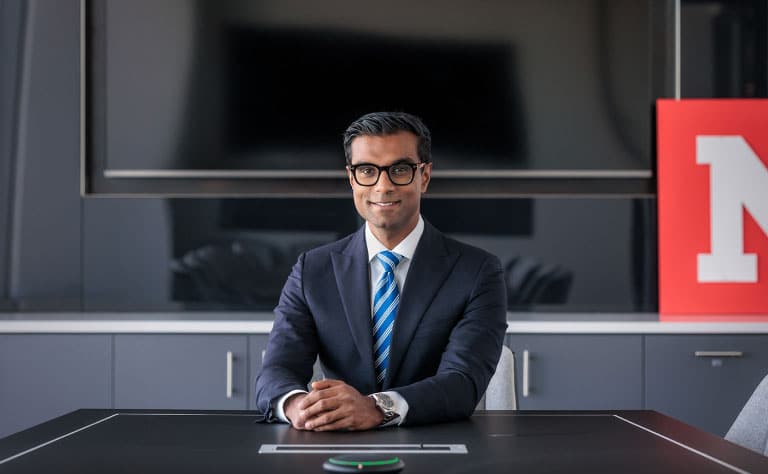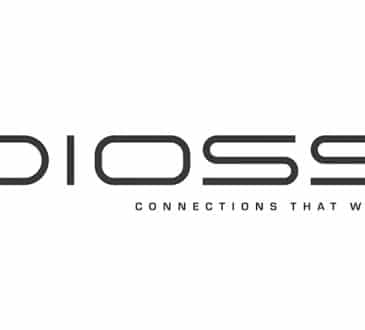Dev Pragad Transforming Newsweek: a case study

Leadership is imperative to all businesses, and with the right strategies and capabilities, any transformation is possible. Following is an interview case study of how Dev Pragad transformed Newsweek from a failing readership base into a digital powerhouse with 100 million readers in just a few years.
Dev Pragad is a proud graduate of Harvard Business School and King’s College London. He is a fellow of King’s College London and completed the prestigious Owner/President Management program at Harvard Business School. Prior to Newsweek, Dev ran the UK edition of IBT Media.
Question: We now know that you are that entrepreneur who has transformed the fortunes of Newsweek, and an organization by itself for many decades. I think it’s still about a decade; it’s only about a decade short of a century now, if you like. And that transformation was huge in this day, in the 21st century. How did you manage?
Why did you think that that dramatic transformation was possible? We know this will be difficult and rare to achieve in any field at any moment in time. But why? Can you tell us a little bit about why you think that transformation was possible? What do you see as the thing that helped you, that propelled you collectively, but also individually as the leader of the institution to achieve this?
What are the obstacles that you think stop individuals and companies from achieving that transformation? But Dev, we have a little bit of time – I always like to listen to you talk about the scale of the transformation itself. Tell us a little bit about it, please.
Dr. Dev Pragad: Sure. It’s such a fascinating story, but by no means was this transformation easy. It was incredibly difficult, incredibly intense, and incredibly challenging. In many ways, it felt all of that happened very briefly. Harvard Business School is actually writing a case study on the work we have done in transforming it under my leadership.
And I was at Harvard teaching that case, and one student came down and asked, ‘how did you accomplish all of this so quickly in such a short period of time?’ I was genuinely shocked by that question because, from my perspective, it felt like an eternity, it felt like it took so long. But the sheer intensity with which my team and I worked is what made this possible.
Taking a step back in late 2016, when I joined Newsweek as the CEO, the company was near bankruptcy. So this was about 15 months before I became an owner, and the team at that time did not even know the scale of the debt the company had. It was mismatched for a number of years. There were no systems, no processes for anything. It was pretty much in a free fall. I had to come in at a time when the company had over $25 million of debt, revenues were really low, but I had a clear vision of what I wanted Newsweek to be about.
I was running Newsweek International before that from London. I had the opportunity and privilege of meeting and talking to a lot of top ex-Newsweek staff. And as I understood the heritage and the history and have my own background in digital media and technology – I did my Ph.D. in Mobile Internet at the Centre for Telecommunications Research at King’s College London, which is one of the leading research institutes in that field – I was able to put all of these together and create a vision for what my version of Newsweek would look like.
Newsweek historically was a massively read publication, so my editor-in-chief, Nancy Cooper, has been with Newsweek since the mid-80s. She would often say Newsweek was known for being a publication that’s massed with class. So what does that look like in the digital era? So in print,; and that was 4.5 million copies a week, about 30 million readers a week.
For me, I thought, ‘in the digital era, that should be at least 100 million readers a month. So I set this big goal. At that point, I didn’t realize the scientific power of setting big ambitious goals. Today, I’ve seen enough research work that tells consistently that companies and units that set big ambitious goals always overachieve more than those that do not. But when I said that, that allowed my leadership team to start thinking differently and start planning. But we faced a phenomenal amount of challenges, the media mocked us, they thought it was not possible, and people ridiculed us that we have going crazy.
As we started to execute on this and started to scale, we faced quality control challenges. As you’re scaling things, you face issues. So how do you react to that? How do you adapt to that? Because we still wanted to be a high-quality publisher, so we had to take feedback. Nancy Cooper, one other thing she did was she wanted to be very honest and transparent.
When we made a mistake, we had a corrections page where we listed all the mistakes because we wanted to be a reputable publication in an era of fake news. When we made a mistake, we didn’t want it to just be like, sorry, we just push it under the carpet and go away. We wanted to hold ourselves accountable, so we had a corrections page; in the beginning, we had a lot of corrections, so others made fun of us for that page. But for us, that became a source of pride, it held us accountable, and today, we hardly have any corrections. So by being very transparent, as we scaled, we were able to bake in quality control into that as well.
We went past 100 million readers at the beginning of last year. Since then, the company has become extremely profitable. If all goes well, our plan is to hire up to 200 people next year. We are expanding very, very fast. But going back to one of the statements I made earlier, as we increased scale, we also wanted to clearly define culture and what we stand for as a publisher. We wanted to clearly define our mission, and we defined our mission as a publication that listens to people across the political and cultural spectrum.
We wanted to resist the notion of much-beloved cancer culture’ or the need to take a particular side. Initially, we thought that was taking a huge risk, but in our research, we found that Newsweek historically was a much-beloved publication by people across the American political and cultural spectrum, and likewise the international elite spectrum. We wanted to embrace that. We wanted to embrace people who are well off and not well off. People who are religious and not religious, people who are capitalist and socialist.
So how do we do that? The best example of that is what we call the debate platform. It’s a project that I personally conceived and was very passionate about, and my whole leadership team absolutely believes in it. It requires us to tackle very difficult topics because in order for us to advance as a society, we should be civilized enough to face opposing viewpoints and digest them and make up our viewpoints. With the rise of social media, there is this confirmation bias.
Facebook gives you only what you like because you like and they know that you like it, so if you are in this bubble. But if you want to be intellectually honest, you need the other view because unless you hear different viewpoints, that’s when you can really appreciate the other viewpoint. Even if you don’t agree with it, the ability to respectfully disagree is important. So one of the slogans we have at Newsweek is the freedom to disagree and to disagree respectfully. I think that’s one of the cornerstones of modern society or civilized society, and I think that’s something we should strive very hard not to lose.
So these are some of the core things, often quite intangible things, that really governed and anchored Newsweek‘s growth. When we have faced issues, whether we have published something that a certain sector did not like or we would have faced a huge PR issue, we go back to our mission statement to really define what we do.
Sometimes we have to make decisions that will get us more heat in the media, but we are like, that is staying true to who we are, and later on, once we cross that storm, it has given us so much recognition. So all of these things continue to empower us to go forward and to scale. We are super excited about what next year holds, and you couple that with an exceptionally good management framework, management skills, and ambitious goal setting. It’s remarkable what you can achieve with those.
For more information on Dev Pragad see his Full Bio, LinkedIn, and Twitter Profiles.
Written by Funmi Olonisakin.
Have you read?
3 Ways Your Digital Experience is Lacking—And How to Fix It by Brian Wallace.
The Power of Paradox by Dr. William Putsis.
Hybrid and Remote Mentoring for Effective Integration of Junior Employees by Dr. Gleb Tsipursky.
Leadership Matters – Even in Outer Space written by Rick Williams.
How Linking Purpose and Strategy Benefits Employees by Ignacio Vaccaro.
5 Strategies for Solving Unsolvable Problems in Business by Jay Bousada.
Add CEOWORLD magazine to your Google News feed.
Follow CEOWORLD magazine headlines on: Google News, LinkedIn, Twitter, and Facebook.
Copyright 2024 The CEOWORLD magazine. All rights reserved. This material (and any extract from it) must not be copied, redistributed or placed on any website, without CEOWORLD magazine' prior written consent. For media queries, please contact: info@ceoworld.biz








